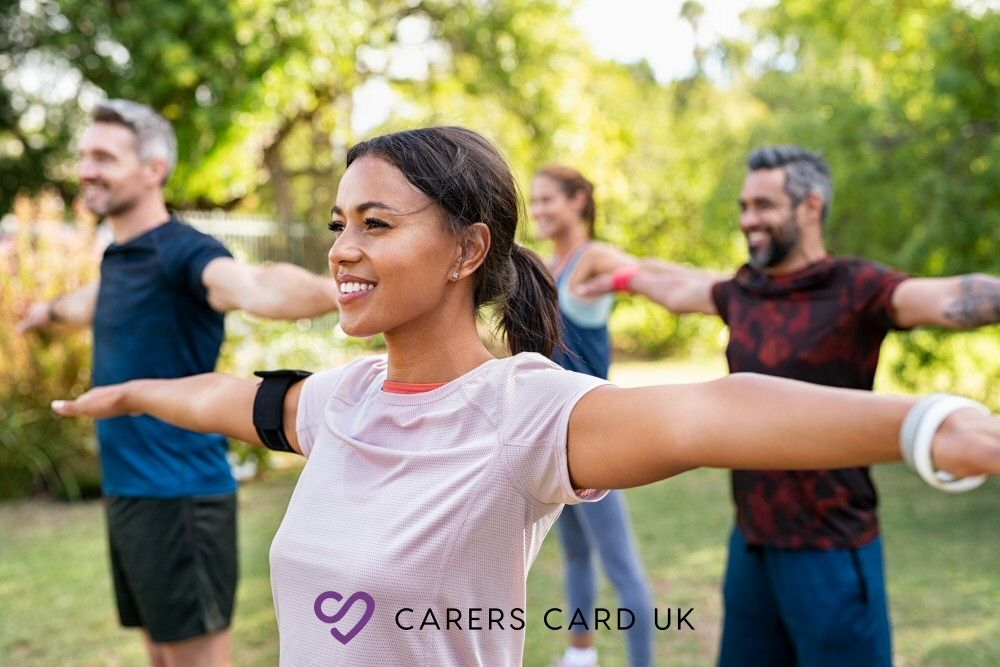1. Utilise Free Online Workout Videos
There is a wealth of free resources available online that cater to all fitness levels and types of exercises, from yoga and pilates to more intensive HIIT workouts. These can be done in your living room with no special equipment necessary.
Real-life example: Jane, a full-time carer for her husband, starts her day with a 30-minute yoga session she found on a free video platform. This routine helps her stay flexible and stress-free.
2. Go for Walks
Walking is a fantastic way to get fit, enjoy some fresh air, and clear your mind—all without spending a penny. Whether it’s a brisk walk in your local park or just a gentle stroll around your neighbourhood, the benefits are immense.
Real-life example: Tom, who cares for his elderly mother, incorporates a quick 20-minute walk into his daily routine, sometimes inviting his mother along in her wheelchair, making it a refreshing break for both.
3. Start a Home Garden
Gardening can be a great way to get some exercise, enjoy the outdoors, and even grow some of your own food, which is not only good for your body but also for your wallet.
Real-life example: Lisa, a carer for her autistic son, finds gardening to be a therapeutic activity that keeps her active. She grows vegetables and herbs, which adds to their healthy diet and saves money on groceries.
4. Use Household Items as Gym Equipment
You don’t need expensive gym equipment to get a good workout. Items like chairs for step-ups, stairs for calf raises, or even large water bottles as dumbbells can be very effective.
Real-life example: Ahmed, who balances caring for his brother with a part-time job, uses cans of food as weights for arm exercises and a sturdy chair for tricep dips during his workout routine.
5. Join Community Sports Groups
Many communities offer free or low-cost sports activities or groups. These can be a great way to meet new people, which is especially important for carers who can often feel isolated.
Real-life example: Susan, a carer for her dementia-afflicted mother, joined a local walking football team. It provides her with regular exercise and a supportive network of fellow carers and friends.
Summary and Key Takeaways
- Explore free online resources for a variety of home workouts.
- Incorporate walking into your daily routine to boost physical and mental health.
- Engage in gardening for physical activity and stress relief.
- Utilise household items to create your own gym at home.
- Look for community sports groups that offer social and physical benefits.
Getting back in shape doesn’t require an expensive gym membership. As a carer, using these accessible and affordable methods can help you maintain your physical health and wellbeing, which is vital in supporting those you care for. For more tips and support, visit the CarersCardUK website.

